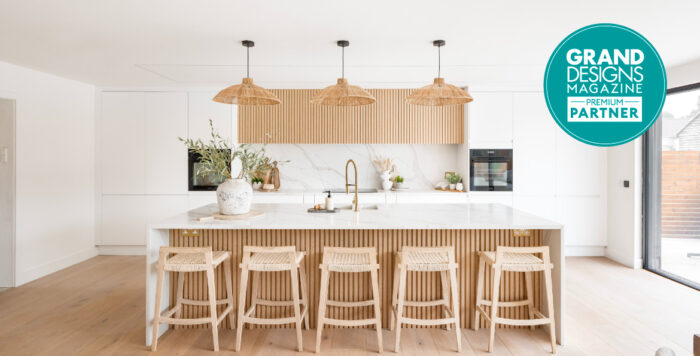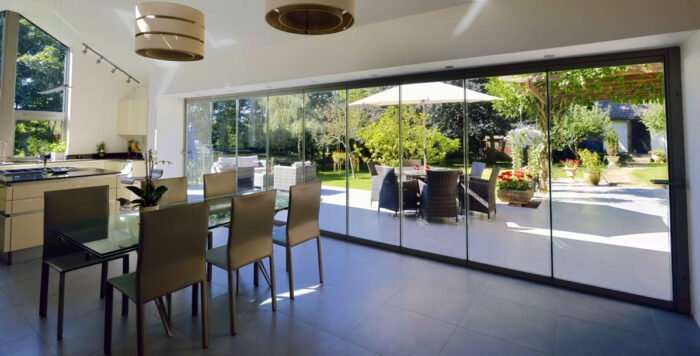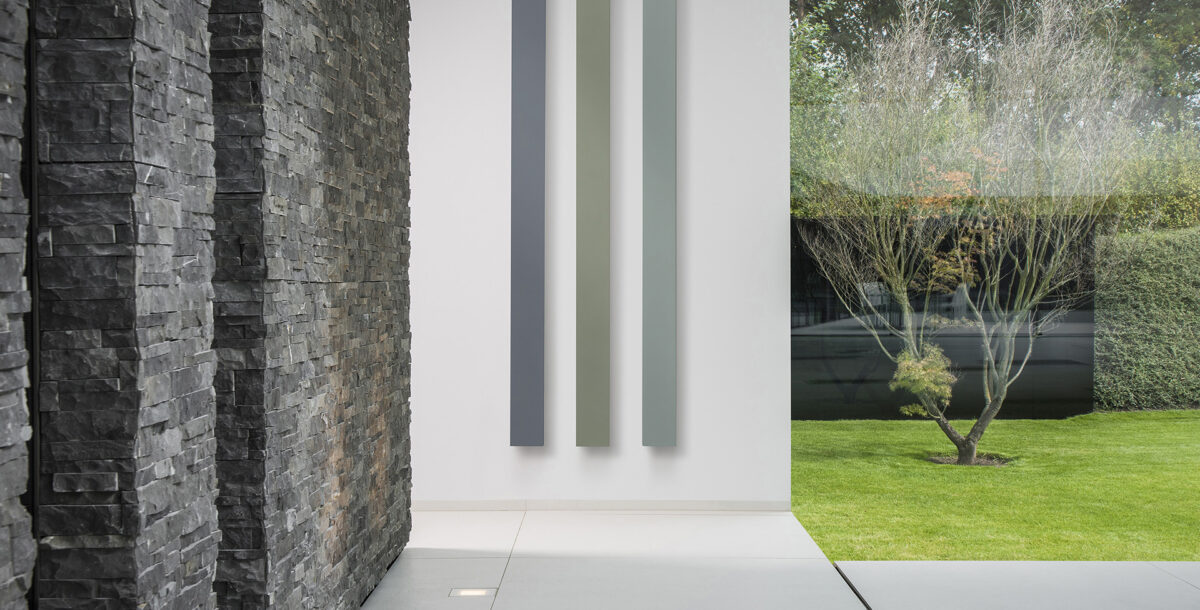How much does an extension cost?
A project can be a big financial investment, but put thought into how much it will cost
If you are concerned about how much your extension will cost then according to check-a-trade.com, in 2023 the average cost for a 20m2 extension is £48,000 (£2,400 per sqm). But the answer is never straightforward for two reasons.
Firstly, you have to decide how much you want to spend, and that’s a matter of resources, aspirations and reality checks. Secondly, you have to stick to the budget, but every project yields nasty surprises and a frequent temptation to upscale everything.
A robust budget needs detail, which means making a long list of decisions about the nature of the project, from who carries out the work to the individual materials used throughout the build. Here are 10 tips for setting – and sticking to – a budget.
1. Preliminary details
Pin down exactly what you want from your extension at an early stage. An extension is a big financial investment, so it’s essential that you put a lot of thought into even a small project.
Ask yourself whether your design is the best use of space. If you are planning a rear extension, do you want a single storey, or is there more potential to be unlocked in a multi-height expansion?
How will the new space be used, and how will it connect to the rest of your home? It’s critical to consider practicalities such as access requirements, too.
If you are in a terraced home, how will builders and materials be transported to the back of your house? Will the disruption mean that you have to move out for the duration of the project? If so, what are the associated costs? Make sure you have the answers to all of these questions before you start planning.
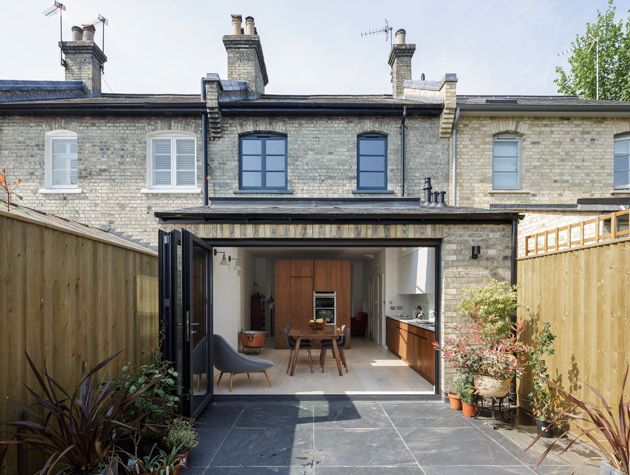
The owner of this small cottage wanted a separate kitchen and living room, and to open up the downstairs. Turner Architects designed and built a piece of furniture that can be moved when the family uses the open-plan space.
2. Assess your finances
There are a number of ways to fund your project. In an ideal world you would finance it using savings, but in reality this isn’t always viable.
You can take out a personal loan of up to around £25,000, which can work well if this is enough to fund your development along with your savings. Factor in the interest that you will be paying when you determine whether or not this is a cost-effective option, and make sure you always keep on top of repayments.
An alternative is to remortgage your property. This will allow you to pay off the original mortgage and, in theory, leave you with enough cash to finance your extension. If you can’t raise sufficient capital this way, then another solution is a stage payment mortgage.
‘This means that funds are drawn down at key points in your build,’ says Rachel Pyne from BuildStore, which offers a product called Accelerator that releases money at the beginning rather than the end of each stage of your project. ‘It means you have access to cash when you need it.’
3. Set a realistic benchmark
Research is critical at the beginning of a project, and that means making lots of enquiries.
‘Asking around about costs is important when setting a budget,’ says Fiona Kirkwood, director of London-based architecture and design firm Kirkwood McCarthy. ‘Whether this involves speaking with industry professionals or suppliers, or chatting with friends who have undertaken similar work, ascertaining a realistic benchmark will help ensure your budget is practical and realistic to the scope you have in mind.’
4. Create a break down of costs
List each element of the project and give it a figure. The biggest expense will be for the building work, but don’t forget to cover all other costs – legal fees for obtaining planning permission, an amount for key appliances and materials, decorating and landscaping the garden.
It can be complicated. Can you afford the pricey marble floor tiles? And if so, have you factored in the cost of the grout, adhesive and sealant, as well as the cost of laying them?
‘Be realistic,’ says Simon Graham, director of Yard Architects. ‘Put together a spreadsheet before starting, and include all the fittings you want. Set concrete budgets for big things like kitchens and bathrooms. Carry out detailed research about building costs for the type of project you are doing – there are helpful calculators online.’
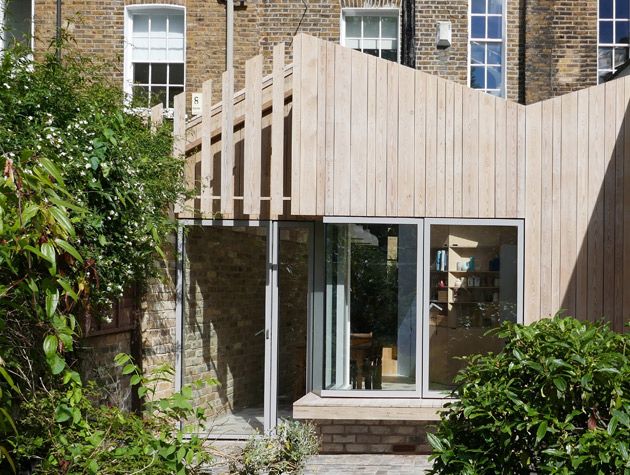
A badly built 1960s kitchen was transformed by Pamphilon Architects into a light and airy space, featuring a timber clad extension that contains a porch area and hidden bathroom
5. Think to the future
Once you have a detailed list of requirements and have turned it into the brief and drawing for the job, it’s time to get a contract. To help, there are standard contracts designed for domestic projects available from RIBA – the Royal Institute of British Architects.
‘Get competitive builders quotes and ensure they have priced for everything you want. It is easy to overspend quickly if the builder doesn’t have detailed drawings or a specification of everything that should be included,’ says Graham. ‘Ensure these are part of the contract between you and your builder.’
6. Establish a contingency
Like other laws of nature, the law of a construction project is that nasty surprises happen, so be prepared. ‘Don’t forget to include a contingency,’ advises Graham. ‘A recommended minimum is 10 per cent. Don’t be tempted to omit this to reduce the overall extension cost, because you will be glad to have a buffer when you start work.’
Start with 15-20 per cent and then reduce the fund as you go through the process phases. As construction proceeds you’ll be able to decrease it further. You don’t have to spend that contingency, so if it isn’t used, consider it found money you can save. This is a great way to feel good about staying on track and coming in under budget.
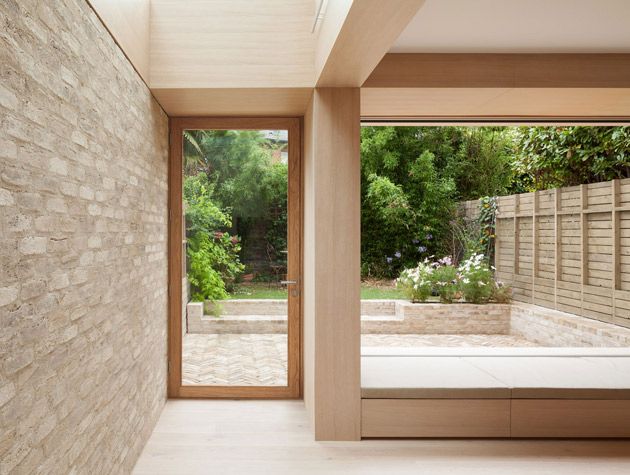
The heart of this Georgian home in Crouch End was moved to the back, overlooking the garden. Created by Erbar Mattes, the façade is made from masonry and precast concrete.
7. Work out a plan
The builder has started and suddenly starts asking you about details and specific materials. If you aren’t prepared, you may find yourself tearing out work or having to live with something you don’t like. Luckily, you have your list and a plan for the timing of each phase of the build. You know what is needed and when, which means no expensive delays or remedial work.
8. Trust your own instincts
Throughout the build, there will be a number of important decisions to be made. If nothing else, you may need to confirm that your plan is robust. However, you may face the temptation to suddenly alter the layout or add more wow factor.
‘Keeping to a budget takes rigour and decisiveness,’ says Kirkwood. ‘Trust the decisions you have made and try to avoid impulsive last-minute changes to prevent costs creeping up.’
9. Stick to an extension cost plan
Every budget is challenged by the desire to do more, and seeing changes occur to your home is addictive. While the builders are here, why don’t we just do the second bathroom, knock down that wall, build a summerhouse and rehang lovely radiators throughout. You’ve made a plan, so stick to it unless you have very good reason to upgrade.
10. Consider trade-offs
If you do find you want to increase the budget by including the latest Aga or some artisan floor tiles, then review your costings and see where you can make changes. Quite often, economies can be made without any damage to the overall project.




